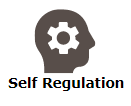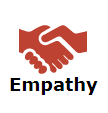Updated March 27, 2023

Overview of Emotional Intelligence Example
Intelligence is a general quality without considering the possible varieties it can possess. There can be every sort of intelligence, like linguistic, mechanical, mathematical, and commercial intelligence, specifically adhering to those values. Hence, to build better personal and professional relationships with ourselves and others, we require work on our emotional intelligence skills. In this topic, we are going to learn about Emotional Intelligence examples.
Emotional Intelligence Example is one’s ability to understand and control their emotions as well as of the ones around them. It is not an inborn talent but developed with education. It can help us understand why some people who might be very successful in their career face problems in personal relationships. Why some leaders are not efficiently able to lead a team, why some people might go through depression and not know how to deal with their emotions, and many more such cases. Being passionate is different, but understanding the emotions well enough so that you have the upper hand to control them defines how emotionally intelligent you are.
Elements of Emotional Intelligence
Emotional Intelligence is a very important skill and includes five main elements, as mentioned below:
1. Emotional Intelligence Example – Self-awareness
Self-awareness is being aware of oneself. If you can understand yourself better, you can acknowledge your strengths and weaknesses, and then you can very well work on them to achieve what you want. Also, when self-aware, one becomes more efficient in understanding others’ emotions and interacting with them. This helps build better relationships with other people.
2. Emotional Intelligence Example – Self-regulation
Regulating one’s emotions comes after learning to acknowledge and understand them. You can keep in check how you deal with them internally and also with others while interacting with them. You can find better ways to say how you feel and make sure that nothing comes out wrong, which can hamper your growth as an individual.
3. Emotional Intelligence Example – Motivation
You gain motivation to do better when you understand yourself better. Be a good leader by leading by example to accomplish your tasks by learning how to work on yourself and your emotions. You will be in a position to deal with your feelings in a healthy way and also motivate those around you to overcome their fears and worries about dealing with their feelings.
4. Emotional Intelligence Example – Empathy
Empathy is about understanding others’ emotions about what they are going through. It involves putting yourself in their shoes and understanding their perspective. In this way, you build a stronger relationship with them and can also help them find ways to handle their emotions. It is easy to advise from the outside until you go through the same thing. So to be a good leader and empathize with the ones around you, to more efficiently understand their needs and expectations and help them conquer them.
5. Emotional Intelligence Example – Social Skills
How to interact with others and build a rapport with them is based on your social skills, and they improve by being more emotionally intelligent and understanding. You can interact well with others when you sense how they feel about a subject and approach any topic according to their thought process to better connect with them. Social skills can be developed from an early age by introducing them to an educational curriculum for students. These skills will help an individual become more socially sensitive and intelligent.
Process of Emotional Intelligence
Emotional Intelligence isn’t something you achieve in one day but a continuous process that involves working on the following aspects:
1. Acknowledge emotions:
Not just be emotional but understanding the origin of your emotions and acknowledging them would help you handle them better. This also involves showing genuine interest while engaging in a conversation with others and retaining what they say to connect with them better.
2. Differentiate and analyze emotions:
Learn to differentiate and explore emotions by acknowledging them and acting accordingly. Not all feelings are the same, and not every individual feels the same sentiment in necessarily the same way. So to better understand how one reacts to it, you need to have the ability to see the difference between them.
3. Accept and appreciate emotions:
Growing to become more emotionally intelligent requires one to accept and appreciate their feelings. To not let their emotions take control of them, but to be able to control them. This happens when you have a positive outlook toward the different facets of emotions and learn to appreciate them because feelings are not good or bad; they receive these connotations from society.
4. Reflect on your emotions and their origin:
Try to understand why you reacted in a certain way in a certain situation. Try to reflect on those emotions you felt, and that is how you can track down the reason behind them. When you learn this well, you will be in a better position to handle your emotions and also understand yourself better. When you know yourself better, you can ensure that others see you in the same light.
5. Handle your emotions:
Others might advise you to handle your feelings in many ways, but you can only work the best way to manage them. This is because only you can reach the origin of your emotions, understand how your emotions erupt, and find the best possible way not to freak out when things are not going according to you. Instead, use your methods to avoid these scenarios and learn to deal perfectly with your emotions.
6. Handle the emotions of others:
When you learn the art of handling your feelings, you can also address the emotions of others or help them in handling them by themselves. You can understand better how an individual deals with emotions and use them to build better connections with others on an emotional level. This helps you in your professional as well as your personal life.
Conclusion
Hence, being emotionally intelligent helps an individual in the long run. We should induct this learning process into everyone’s life as soon as possible. This can start with the school curriculum from childhood; only children learn the art of understanding emotions and how to handle them, which will help them grow into more emotionally intelligent individuals.
Recommended Articles
This article is a guide to Emotional Intelligence Example. Here we discuss the Elements and Process of Emotional Intelligence. You can also go through our other suggested articles to learn more –





